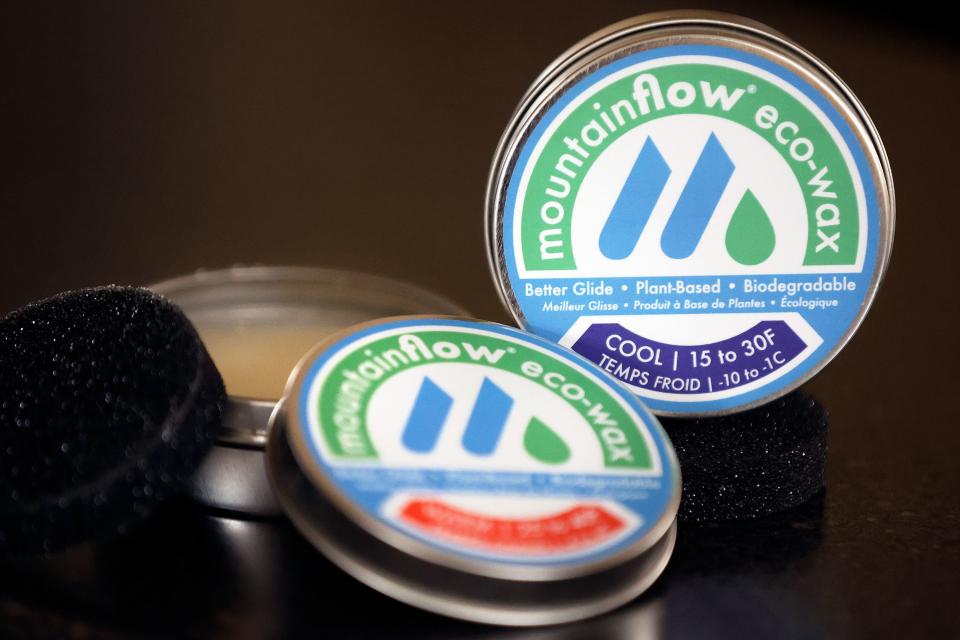Ski wax chemicals found in Park City’s aquifer and groundwater wells

Park City officials enacted a drinking water regulation that prohibits using or selling a certain kind of ski wax they believe is causing contamination of groundwater wells and an aquifer.
Fluoro ski wax, which is usually labeled with LF and HF on packaging, contains polyfluoroalkyl substances.
Known by the ominous nickname “forever chemicals”, or PFAS, these man-made chemicals are used by the thousands in everyday materials to repel oil, water, grease and stains, and a host of other applications.
They’re everywhere, they only break down over an extended period of time, and can pose health risks at certain levels that include thyroid disease, changes in liver enzymes and high cholesterol.
The U.S. Environmental Protection Agency received $2 billion in February under President Joe Biden’s Bipartisan Infrastructure Law to address emerging contaminants, including PFAS.
Here is what the EPA has concluded so far with its outreach and research:
Because of their widespread use and their persistence in the environment, many PFAS are found in the blood of people and animals all over the world and are present at low levels in a variety of food products and in the environment.
PFAS are found in water, air, fish and soil at locations across the nation and the globe.
There are thousands of PFAS chemicals, and they are found in many different consumer, commercial, and industrial products. This makes it challenging to study and assess the potential human health and environmental risks.
Related
‘Forever chemicals’ are everywhere and potentially harmful to you
Freshwater fish could contain high amounts of harmful chemicals, new study finds
New analysis confirms harmful ‘forever chemicals’ at Utah military bases

PFAS and the regulatory front
The EPA ordered states to test for PFAS contamination in water. Results at the time showed “non-detect” levels in Utah, where the state Department of Environmental Quality formed a working group in 2019. Those levels have since changed.
Michelle DeHaan, Park City’s water quality and treatment manager, said the city’s drinking water is safe and meets all federal standards — she drinks water out of the tap all the time — but the city is proactively trying to eliminate any contamination of two subgroups of PFAS chemicals: PFOA and PFOS.
The aquifer and groundwater drinking water wells tested at a threshold of 7.2 parts per trillion of PFOS, which exceeds interim health advisories established by the EPA.
DeHaan added the city is expecting an EPA draft set of parameters for the city’s drinking water based on those groups of contaminants.
The Park City ski area is not the only recreational region impacted by the chemicals, with DeHaan pointing to a study out of Colby, Maine, that looked at snow contamination at an active skiing area both before and after a ban on fluoro ski wax.
Researchers found that the chemical contamination was greatly reduced over two years from when a ski race happened without the ban on that type of ski wax and when it was in place for the same race.
Maine, in fact, became the first place in the world to enact a ban on products like rugs, new carpets and fabric treatments that contain PFAS chemicals that went into effect in January this year. Information on other products containing the chemicals must be provided to Maine water quality regulators. An outright ban on all materials will go into effect in 2030, according to reporting by UL Solutions.
Both California and New York have enacted bans on PFAS chemicals in food packaging — it’s the stuff that keeps your pizza from sticking to the box and that is used in other fast food containers.
Even toilet paper around the globe contains the chemicals and is a significant source of water pollution, according to research written about in the Guardian.
A certain type of firefighting foam contains the chemicals and contamination has also impacted farmers and their crops.
The Hollywood connection
The film “Dark Waters” played in theaters across the nation in 2019, starring Anne Hathaway and Mark Ruffalo. It details the story of an attorney who took on DuPont, which paid a settlement of $670 million in 2017 stemming from water contamination lawsuits.
In the 1940s, DuPont made and used PFAS chemicals for its development of Teflon, which was banned in the United States in 2014. Teflon-containing products are now heated at high temperatures in the manufacturing process to eliminate the chemicals, but other Teflon-containing products made before 2013 may be unsafe, according to The Healthy Journal.
Park City response
“We’ve actually gotten a really good response from the community” over a take-back program leaders implemented for the fluoro wax, which can be turned over to Recycle Utah at 1951 Woodbine Way in Park City, DeHaan said.
The wax can be turned in until April 15 for this ski season. DeHaan said another campaign will be launched next year to continue to fight the contamination.

